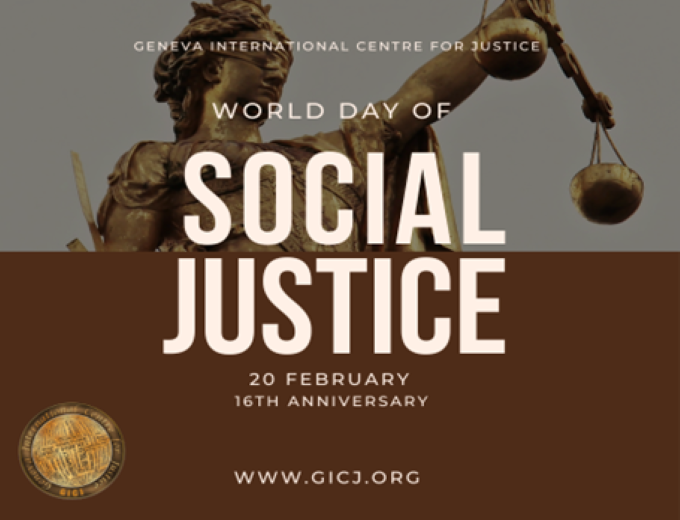16th Anniversary of the World Day of Social Justice
20 February 2024

Background
The International Labour Organization (ILO) adopted the ILO Declaration on Social Justice for a Fair Globalization on 10 June 2008. This declaration, the third of its kind since the establishment of the ILO in 1919, builds upon the principles outlined in the Philadelphia Declaration of 1944 and the Declaration on Fundamental Principles and Rights at Work of 1998. This landmark declaration reaffirms the core values of the ILO and stems from discussions following the World Commission on the Social Dimension of Globalization's report. Representatives from 182 member states, including governments, employers, and workers, underscore the vital role of the ILO in promoting progress and social justice in the global context. They pledge to strengthen the ILO's capacity to advance these goals through the Decent Work Agenda, which has been central to the organisation's objectives since 1999.
The declaration arrives at a crucial moment, highlighting the international community’s consensus on the necessity of ensuring fair labour outcomes for all. Recognizing the crucial link between social development, social justice, and peace and security, the General Assembly underscores the importance of respecting human rights and fundamental freedoms. It acknowledges the benefits and challenges of globalisation, stressing the need for inclusive participation in the global economy, particularly for developing and transitioning economies. Accordingly, on 26 November 2007, the General Assembly designated February 20 as the World Day of Social Justice.
Themes and Initiatives
Each year, the International Day of Social Justice focuses on a specific theme to highlight pressing issues and mobilise action. Themes have ranged from poverty eradication and gender equality to climate justice and the rights of indigenous peoples. Through campaigns, conferences, and community events, international organisations such as the ILO come together to discuss challenges, share best practices, and advocate for policy changes that advance social justice goals. Additionally, grassroots organisations and civil society groups play a crucial role in driving change at the local level, amplifying the voices of marginalised communities and holding governments and institutions accountable for their failures in representing them. It is important to note that the United Nations has not yet officially announced the theme for 2024. Nevertheless, there are several significant issues that deserve attention.
Promoting Gender Equality
Gender inequality remains a pervasive issue, with women and girls facing discrimination in various spheres of life, including education, employment, and political participation. By challenging gender norms, promoting equal access to education and healthcare, and ensuring women's representation in decision-making processes, societies can create more inclusive, equitable and productive environments for all. Furthermore, addressing gender-based violence and supporting survivors are essential steps towards building a society free from discrimination and injustice.
Combating Racial Discrimination
Racial discrimination continues to be a global challenge, perpetuating systemic inequalities and undermining social cohesion. Education plays a critical role in challenging stereotypes and fostering empathy and understanding among individuals from different racial and ethnic backgrounds. Therefore, anti-discrimination laws and policies must be strengthened and enforced to protect the rights of racial minorities and ensure equal opportunities for all members of society.
Environmental Justice
Environmental degradation and climate change pose existential threats to humanity, disproportionately impacting vulnerable communities around the world. The International Day of Social Justice recognises the risks posed by social and environmental issues and advocates for a holistic approach to sustainability. It is essential to address environmental inequalities and ensure that marginalised communities have a voice in decision-making processes that affect their lives. This includes safeguarding indigenous lands, promoting renewable energy sources, and transitioning to sustainable modes of production and consumption.
Geneva International Centre for Justice (GICJ) reaffirms its commitment to fostering a world characterised by fairness and equity. We recognize the importance of addressing the root causes of social injustice through inclusive policies and practices. We urge the international community to advocate for marginalised populations and dismantle systemic barriers across intersecting lines of discrimination, in a global effort to guarantee social equality for all.







